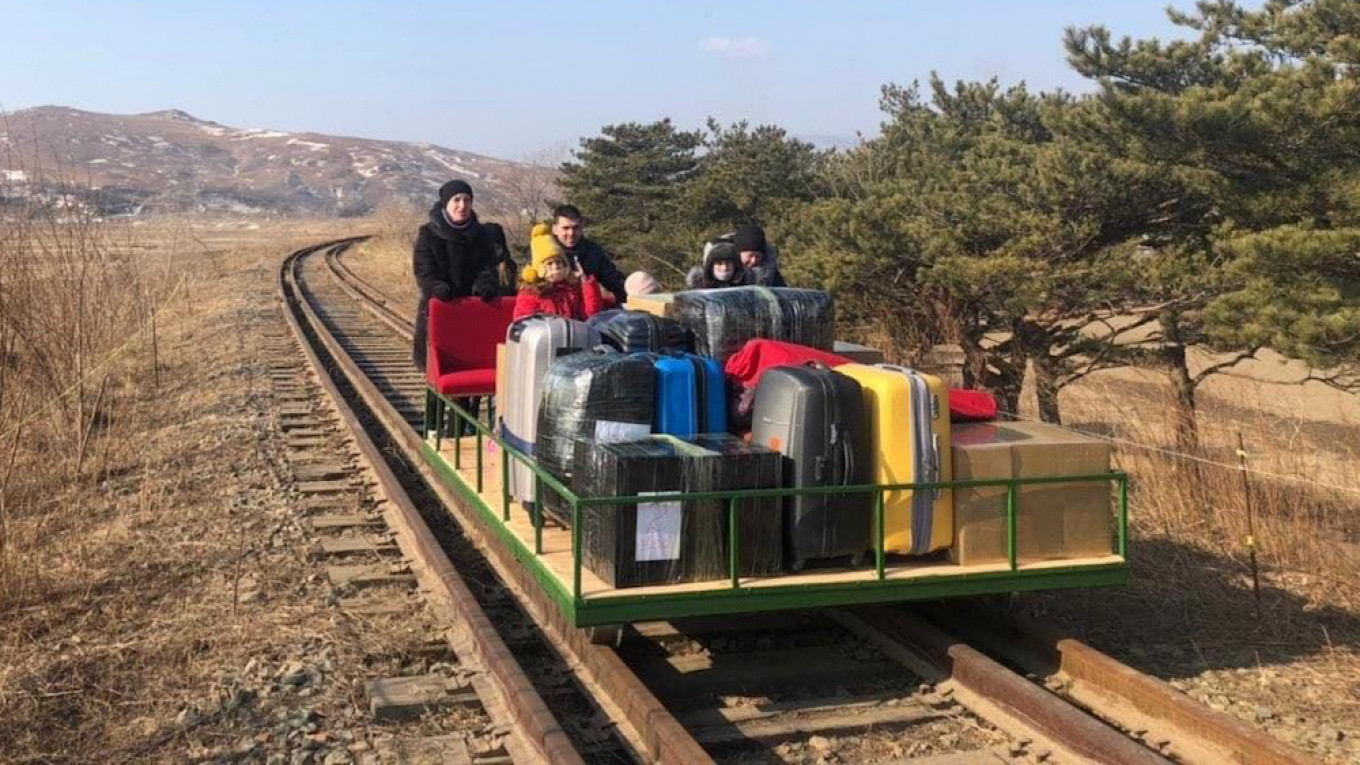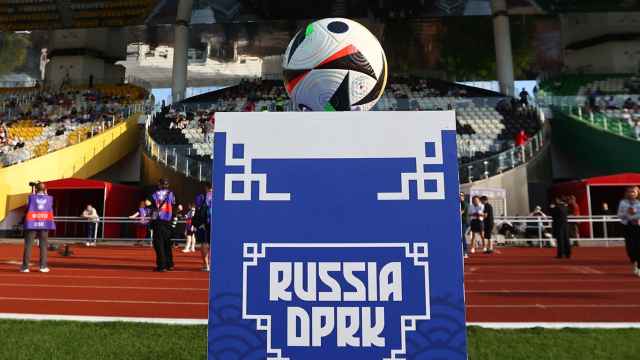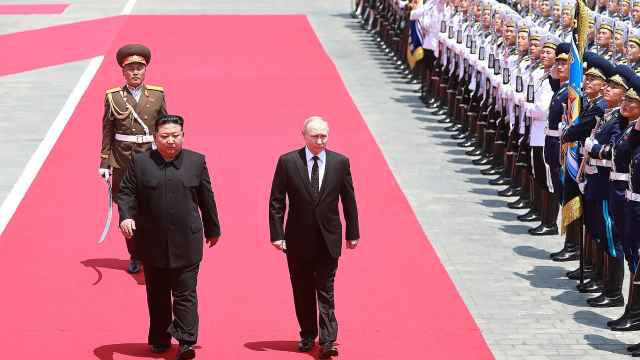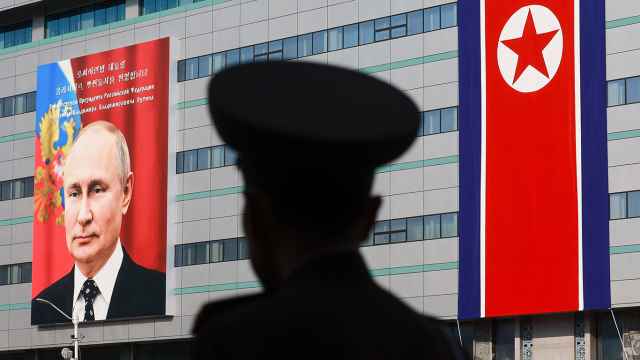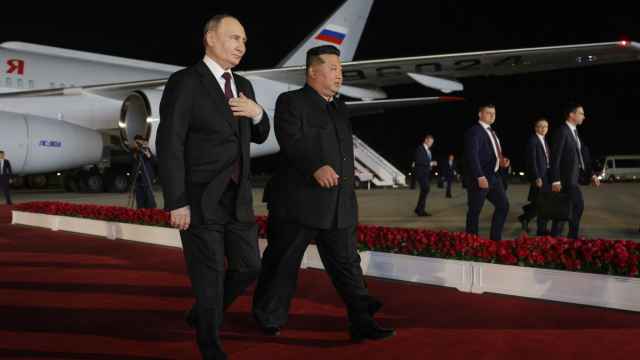Russian diplomats and their family members returning from North Korea were forced to push a handcar with their belongings over the border as the reclusive country remained closed due to the coronavirus, the Russian Foreign Ministry said Thursday.
North Korea has not reported any Covid-19 cases more than a year into the global pandemic that has infected 113 million and killed 2.5 million people. Foreign diplomatic missions closed last spring and most employees, including 13 from Russia’s Embassy in Pyongyang, were flown out of the country.
Eight Russian Embassy employees and their families made their way home Thursday with the help of a railroad handcar loaded with luggage and children.
Their journey began with a 32-hour train ride out of Pyongyang, followed by a 2-hour bus ride to the Russian border, where Russia’s Foreign Ministry said a crucial last leg awaited them.
“The most important part of the route was a pedestrian crossing to the Russian side. They needed to prepare a cart in advance, put it on rails, place the luggage, seat the children and set off,” the ministry said.
Footage shared by the ministry showed the eight diplomats and family members, including Third Secretary Vladislav Sorokin and his 3-year-old daughter Varya, smiling as they slowly moved across the dry deserted landscape.
“They had to push the whole structure by rail for more than a kilometer, with the most crucial segment being the bridge across the Tumen River,” the ministry said with an accompanying video of the cheering travelers.
The road-weary diplomats were met by colleagues at the border crossing and bussed to the Pacific port of Vladivostok, the ministry said in a social media post with the hashtag “We Don’t Leave Our Own.”
A Message from The Moscow Times:
Dear readers,
We are facing unprecedented challenges. Russia's Prosecutor General's Office has designated The Moscow Times as an "undesirable" organization, criminalizing our work and putting our staff at risk of prosecution. This follows our earlier unjust labeling as a "foreign agent."
These actions are direct attempts to silence independent journalism in Russia. The authorities claim our work "discredits the decisions of the Russian leadership." We see things differently: we strive to provide accurate, unbiased reporting on Russia.
We, the journalists of The Moscow Times, refuse to be silenced. But to continue our work, we need your help.
Your support, no matter how small, makes a world of difference. If you can, please support us monthly starting from just $2. It's quick to set up, and every contribution makes a significant impact.
By supporting The Moscow Times, you're defending open, independent journalism in the face of repression. Thank you for standing with us.
Remind me later.


